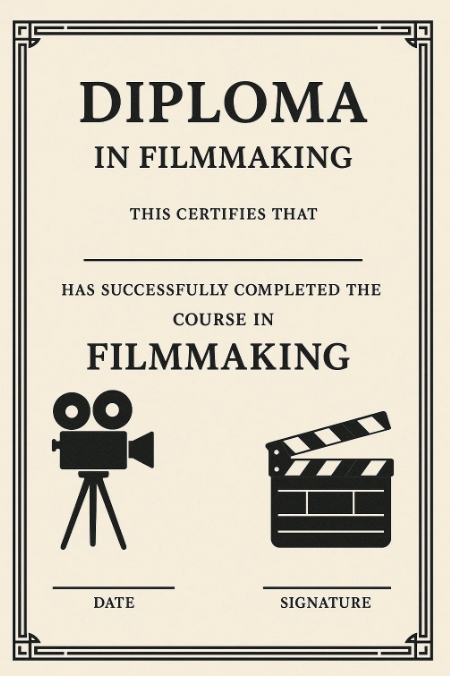Diploma in Filmmaking: Turning Your Vision Into Motion

Movies, documentaries, music videos, short films — they all start with an idea and a camera, but it’s the filmmaker who brings them to life.
If you’ve ever imagined yourself shouting “Action!” on set or crafting a story that moves audiences, a Diploma in Filmmaking could be your launchpad.
What is a Diploma in Filmmaking?
A diploma in filmmaking is a practical, hands-on program designed to teach the art, craft, and business of creating films.
Unlike a theory-heavy degree, diploma courses focus on skill-building and portfolio creation, preparing you to step into the industry quickly.
Core subjects often include:
- Scriptwriting & storyboarding
- Cinematography techniques
- Lighting & sound design
- Editing & post-production
- Directing actors and crew
- Production management & budgeting
- Film marketing & distribution
Duration can range from 6 months to 2 years, depending on the institute and course format.
Why Filmmaking is a Growing Career Path
- Streaming platforms boom — Netflix, Amazon Prime, Disney+, and regional OTT platforms are investing billions in original content.
- Short-form content explosion — From YouTube to Instagram Reels, video is the most consumed digital medium.
- The global film industry is expected to surpass $410 billion by 2030 (PwC report).
💡 Fun fact: In India alone, over 1,500 films are produced every year — more than any other country.
Opportunities After the Course
Graduates can explore roles such as:
- Film Director
- Screenwriter
- Cinematographer
- Video Editor
- Production Designer
- Sound Engineer
- Documentary Filmmaker
- Assistant Director (AD)
You can also branch into advertising films, corporate videos, music videos, and digital content creation.
Why Students Choose a Diploma Over a Degree
- Faster Entry – Shorter duration for a diploma in film making means you can start working sooner.
- Hands-On Learning – Most diploma programs focus on real shoots, not just lectures.
- Lower Cost – Typically more affordable than a full film school degree.
- Flexible Learning – Many offer evening or weekend batches for working professionals.
Drawbacks to Consider
- No deep academic theory – If you want a career in research or film criticism, a degree might be better.
- Portfolio-Dependent Career – Your success depends more on your work samples than your diploma certificate.
- High Competition – Filmmaking is glamorous but crowded; networking is essential.
Who Should Enroll?
You’ll thrive in a filmmaking diploma if you:
- Are passionate about visual storytelling.
- Enjoy working in creative teams.
- Can adapt to long, irregular hours.
- Want a practical, skills-first learning path.
Final Word
A diploma in filmmaking is your gateway to turning creative passion into a professional career. It’s fast, practical, and tailored to industry demands — but it’s not a magic ticket. The real key to success lies in building a strong portfolio, networking relentlessly, and constantly honing your craft.
Pro Tip: When choosing an institute, look for one that offers industry internships, access to professional equipment, and mentorship from working filmmakers — these can make all the difference in your career start.

